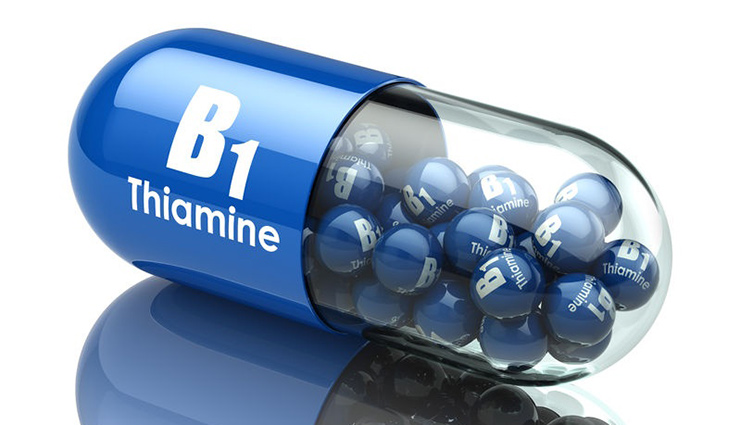
Vitamin B1
Vitamin B1, also called Thiamin, is one of the B vitamins. Vitamin B1 is a water-soluble vitamin, which means that the body cannot store vitamin B1 and needs to get it through nutrition daily.
Effects of vitamin B1 in the body:
Vitamin B1 helps the body digest and absorb nutrients and convert them into energy, a process called the metabolism of fats, proteins, and carbohydrates. Many enzymes like digestive enzymes, which break down food in the digestive tract, need vitamin B1 to produce and activate.
So a deficiency of this vitamin can cause digestive problems such as anorexia, overeating, Nervous, difficulty digesting food, and so on.
Vitamin B1 helps the transmission of nerve messages from the central nervous system to regulate muscle movements and memory. Vitamin B1 is one of the essential substances for the brain and central nervous system that its deficiency is associated with psychological symptoms such as depression, forgetfulness, and anxiety.
Vitamin B1, in conjunction with neurotransmitters in the brain, is responsible for regulating appetite, which together creates a feeling of hunger or satiety after eating.
Vitamin B1 and its relationship to nerves and heart health:
Vitamin B1 provides nutrients for the health of nerve cells. The outer layer of nerve cells contains vitamin B1 so that their activity is highly dependent on this vitamin.
Vitamin B1 maintains the health of red blood cells. As a result, the oxygen supply of the blood increases.
Symptoms and Complications of Vitamin B1 Deficiency
Some associated symptoms with vitamin B1 deficiency are gastrointestinal problems such as bloating, anorexia, bulimia nervosa, severe weight loss, weakness and fatigue, muscle aches, palpitations, insomnia, memory loss, depression, anger, and inability to concentrate.
Severe and chronic deficiency of vitamin B1 causes beriberi, which is associated with severe neurological disorders. If it would leave untreated can lead to damage to the nervous system and even death.
Food sources containing vitamin B1
Foods rich in vitamin B1 include rice bran and other whole-grain cereals, barley, nuts such as pistachios, almonds, walnuts, brewer's yeast, legumes, especially lentils and beans, beef, milk, and oranges.
What causes vitamin B1 deficiency in the body?
Vitamin B1 is available in most foods, but many people are deficient in it. The cause may be taking certain foods that avoid the absorption or excretion of vitamin B1 from the body.
Drinking too much alcohol, tea, coffee, eating raw seafood, antacids used to reduce stomach acid, smoking, excessive consumption of carbohydrates such as rice and bread all cause a deficiency of this vitamin. Also, due to soil erosion and reduced food quality, a slight deficiency of vitamin B1 is observed in many people.
Vitamins are available independently in different doses. It is safe to use them up to a dose of 100 mg per day. But the appropriate quantity is 1.3 to 25 mg for adults.
Overuse of vitamin B1 supplements in high doses can cause side effects such as allergies, weakness and numbness, skin problems such as hives, inflammation, and itching of the skin, bloating, nausea, and so on.




